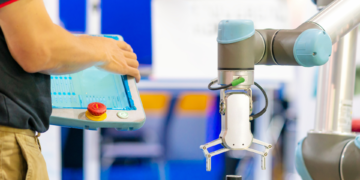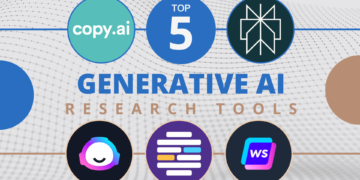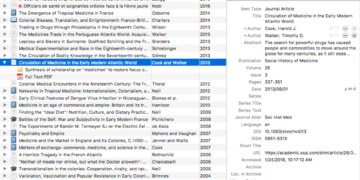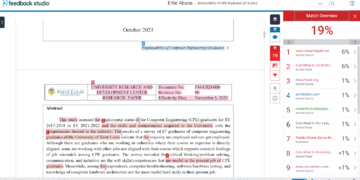Data analysis is a critical skill in research, business, and various fields. Mastering it requires a blend of technique, tools, and critical thinking. Whether you’re a novice or an experienced analyst looking to enhance your skills, here are the top 5 proven methods to supercharge your data analysis skills.
1. Master Key Data Analysis Tools
Leveraging the right tools can significantly enhance your data analysis capabilities. Familiarity with advanced software and programming languages is crucial for handling complex datasets and performing sophisticated analyses.
1.1 Learn Python and R
- Python: Known for its simplicity and versatility, Python is widely used in data analysis for tasks ranging from basic statistical analysis to machine learning. Libraries such as Pandas, NumPy, and Matplotlib make it an essential tool.
- R: A language specifically designed for statistical analysis and visualization, R offers a vast range of packages like ggplot2 and dplyr for data manipulation and graphical representation.
1.2 Utilize Data Visualization Tools
- Tableau: A powerful tool for creating interactive and shareable dashboards. Tableau’s drag-and-drop interface allows you to visualize data trends and insights easily.
- Power BI: Microsoft’s business analytics tool integrates seamlessly with various data sources and provides interactive visualizations and business intelligence capabilities.
1.3 Explore Big Data Technologies
- Hadoop: An open-source framework that allows for the distributed processing of large datasets across clusters of computers.
- Spark: A unified analytics engine for big data processing, known for its speed and ease of use. Spark supports in-memory computing and can handle real-time data processing.
2. Develop Advanced Statistical Skills
Advanced statistical techniques can provide deeper insights and enhance the accuracy of your data analysis. Mastering these techniques is crucial for complex analyses and hypothesis testing.
2.1 Understand Inferential Statistics
- Hypothesis Testing: Learn to conduct hypothesis tests such as t-tests, chi-square tests, and ANOVA to make data-driven decisions and validate your assumptions.
- Regression Analysis: Master linear and logistic regression to understand relationships between variables and predict outcomes.
2.2 Utilize Multivariate Analysis
- Principal Component Analysis (PCA): A technique for reducing the dimensionality of data while retaining most of the variance. PCA is useful for simplifying complex datasets.
- Cluster Analysis: Group similar data points together using techniques like k-means clustering or hierarchical clustering to uncover patterns and relationships.
2.3 Apply Bayesian Methods
- Bayesian Inference: Use Bayesian methods to update probabilities as new data becomes available. This approach is valuable for decision-making under uncertainty.
3. Enhance Your Data Cleaning and Preparation Skills
Data cleaning and preparation are crucial steps in data analysis. Ensuring your data is accurate, complete, and well-organized lays the groundwork for reliable analysis.
3.1 Implement Data Cleaning Techniques
- Handling Missing Values: Use imputation methods to fill in missing values or remove incomplete records based on the context of your analysis.
- Outlier Detection: Identify and manage outliers that may skew your results. Techniques such as Z-scores or interquartile range (IQR) can be used.
3.2 Standardize and Normalize Data
- Normalization: Scale data to a standard range, such as 0 to 1, to ensure consistency and improve the performance of analytical models.
- Standardization: Transform data to have a mean of 0 and a standard deviation of 1. This process is useful for many statistical techniques and algorithms.
3.3 Automate Data Preparation
- ETL Processes: Implement Extract, Transform, Load (ETL) processes to automate data extraction, transformation, and loading tasks. Tools like Apache Nifi or Talend can assist with ETL workflows.
- Scripting: Write scripts to automate repetitive data preparation tasks, reducing errors and saving time.
4. Cultivate Strong Analytical Thinking
Strong analytical thinking skills enable you to interpret data effectively and draw meaningful conclusions. Developing these skills can enhance your overall data analysis proficiency.
4.1 Focus on Problem-Solving
- Define Clear Objectives: Clearly define the objectives of your analysis. Understanding the problem you are trying to solve helps guide your analysis and ensures that you focus on relevant data.
- Ask the Right Questions: Formulate insightful questions that will guide your analysis and uncover valuable insights.
4.2 Use Data Storytelling Techniques
- Narrative Construction: Craft a compelling narrative around your data findings. Use storytelling techniques to make your analysis more engaging and easier to understand.
- Visual Aids: Enhance your narrative with visual aids such as charts, graphs, and infographics to illustrate key points and trends.
4.3 Stay Curious and Inquisitive
- Continuous Learning: Stay updated with the latest developments in data analysis techniques and tools. Engage with online courses, webinars, and industry publications.
- Experimentation: Experiment with different analysis methods and techniques to discover new insights and improve your skills.
5. Collaborate and Seek Feedback
Collaboration and feedback are essential for refining your data analysis skills and ensuring the accuracy and relevance of your findings.
5.1 Collaborate with Peers
- Team Projects: Work on data analysis projects with colleagues or in a team setting. Collaboration can provide new perspectives and enhance the quality of your analysis.
- Knowledge Sharing: Share your findings and techniques with others to gain valuable feedback and learn from their experiences.
5.2 Seek Constructive Feedback
- Review Sessions: Organize review sessions where peers or mentors can provide feedback on your analysis and suggest improvements.
- Incorporate Feedback: Use feedback to refine your analysis techniques, address any shortcomings, and enhance the overall quality of your work.
5.3 Engage with the Data Analysis Community
- Online Forums: Participate in online forums and communities related to data analysis. Engaging with other professionals can provide insights and solutions to common challenges.
- Professional Organizations: Join professional organizations or associations related to data science and analytics to network and stay informed about industry trends.
Conclusion
Supercharging your data analysis skills requires a combination of mastering essential tools, developing advanced statistical skills, enhancing data preparation techniques, cultivating strong analytical thinking, and actively seeking collaboration and feedback. By applying these proven methods, you can elevate your data analysis capabilities and achieve more accurate, insightful, and impactful results.





































